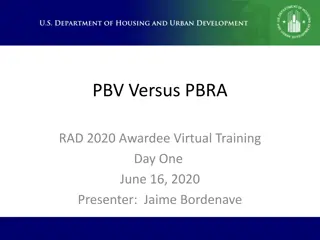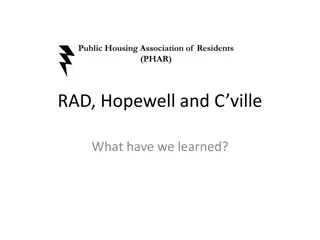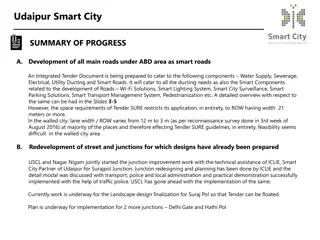SMART RAD
Radiographers play a crucial role in today's advanced healthcare landscape, where patients are more informed and demanding. This requires professionals to uphold ethical standards, prioritize patients' well-being, and advocate for the best care practices. The importance of embracing technological advancements and maintaining ethical conduct in radiography is emphasized, along with the need to resist personal biases that could affect patient care quality.
Download Presentation

Please find below an Image/Link to download the presentation.
The content on the website is provided AS IS for your information and personal use only. It may not be sold, licensed, or shared on other websites without obtaining consent from the author.If you encounter any issues during the download, it is possible that the publisher has removed the file from their server.
You are allowed to download the files provided on this website for personal or commercial use, subject to the condition that they are used lawfully. All files are the property of their respective owners.
The content on the website is provided AS IS for your information and personal use only. It may not be sold, licensed, or shared on other websites without obtaining consent from the author.
E N D
Presentation Transcript
TECH SAVVY & ETHICALLY SMART RAD MAAME FOSUA AMPOFO GSR ZONAL CONFERENCE, 1STAPRIL 2023
Radiographers have always needed to embrace change. Radiography is a rapidly advancing profession. Are you moving with Technology? Flexibility is an essential attribute as new technology and ways of working are introduced
Todays patients are more sophisticated than a few decades ago. They are more bold because; 1. they know their rights 2. more access to information about their illness Do really know to day s patient? 3. they know what to expect 4. they know where to seek redress
As professionals we have Ethical duties towards; The Patient Other health professional Do you know? society Environment Self
The patients best interest should be of primary importance. Duties to the Patient
What have you been trained in? What are you proficient in? Perform only the procedures for which you are Trained Will you need assistance in a procedure? Please seek help when necessary
Advocate the most appropriate care for patients Ensure that a patient entrusted to you receive the most appropriate care
This is differences in the quality of healthcare that is not due to access-related factors or clinical needs, preferences, and appropriateness of intervention. Personal prejudices must not affect professional relationship A person s level of poverty, education, religion, culture or race should not affect the quality of care they receive from us .
ABUSE OF POWER, what does it mean?
Abuse of power is the misuse of our position as professionals to take unjust advantage of patients i.e. physically, emotionally financially and sexually Do not abuse the power entrusted in you as a professional Condescending reactions to patients questions. Replace therapeutic/diagnostic goals with exploitative goals, sexual or otherwise.
A As Practice the principles of justification, optimization and ALARA. L Low A As R Reasonably A Achievable
Cover patient properly during examination Respect and maintain patient privacy and confidentiality at all times For ultrasound examinations, area under examination must be exposed in a dignifying manner. do not walk in and out of the changing room when patient is changing.
Access to patients details must be limited to only relevant people. Respect and maintain patient privacy and confidentiality at all times Minimize the number of staff moving in and out of examination room whiles patient is in there
Facilitate and support the free and informed choices of patients, families, or caregivers, including decisions to refuse or withdraw from imaging and/or treatment.
Ensure the principle of informed consent is upheld throughout the patient s experience. At what stages in the examination do we need patients consent?
Treat all individuals with respect and dignity. Do all patients deserve same treatment? Provide care regardless of race, national or ethnic origin, colour, gender, sexual orientation, religious or political affiliation, age, type of illness, mental or physical ability.
Educate patients, families, and caregivers by providing information that can be understood and used to make informed decisions about their care. Provide Provide information information
Seek additional information or refer the patient to the most appropriate healthcare provider. Answer Questions Answer Questions Honestly Honestly Answer questions fully and honestly within the limits of your knowledge, authority, and responsibility
What rights of patients can you remember off head? Respect patients rights. Do you know the Patients Chatter?
Collaborate and consult with patients, appropriate decision-makers, and healthcare providers to facilitate optimal patient care. Does the patients history correspond to the request? Facilitate patients care Is cholecystitis being queried whiles Pelvic scan is requested?
Intervene in circumstances of abuse or unsafe, incompetent, or unethical practice. See Something, Say Something























